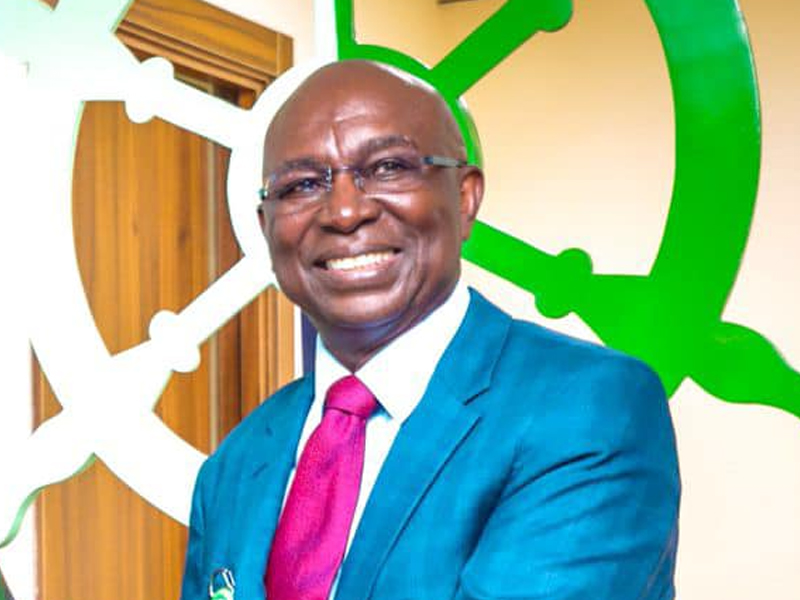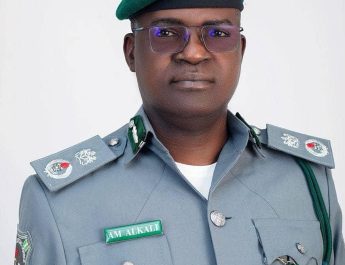The Director General of Nigerian Maritime Administration and Safety Agency(NIMASA) Dr Dayo Mobereola reels out his plans to reposition the agency in the comity of maritime economies, insisting that under his leadership all the contracts that will be awarded by NIMASA must pass through due process in order to avoid the booby trap that ruined his immediate predecessor
By Innocent Chukwu
In his decision to carve a different path for himself to avoid the booby traps that ruined the leadership of his predecessors, the new Director General of Nigerian Maritime Administration and Safety Agency (NIMASA), Dr. Dayo Mobereola, has insisted that his administration would run a disciplined leadership where transparency in the award of contracts and recruitment exercise would be the watchword of the maritime regulatory agency. Mobereola said all contracts that would be awarded under his watch must be “in accordance with the guidelines of the procurement processes”.
Speaking in Lagos on Monday, August 12, 2024, at a media parley, the NIMASA boss assured that, “We will continue to elaborate on that (transparency), every single contract to be awarded must be in line with the Nigerian procurement system”.
Mobereola was speaking against the background of allegations of contract racketeering scandal that rocked NIMASA during the administration of his immediate predecessor, Dr Bashir Jamoh, as well as the increasing corruption among public office holders in the country.
 Speaking on other issues, Mobereola stressed on freight charges, the Cabotage Vessels Finance Fund (CVFF), the contribution of the Marine and Blue Economy Ministry to the Gross Domestic Product (GDP) and various other issues.
Speaking on other issues, Mobereola stressed on freight charges, the Cabotage Vessels Finance Fund (CVFF), the contribution of the Marine and Blue Economy Ministry to the Gross Domestic Product (GDP) and various other issues.
The NIMASA boss also mulled the withdrawal of the 300 National Shipping Development Programme (NSDP) cadets from the Centurion University in India
Addressing the concerns raised regarding the quality of education and training the cadets are receiving at Centurion University, Mobereola emphasized the agency’s commitment to ensuring that the cadets return to Nigeria as well-prepared and employable graduates.
“We have not decided to bring those students back home. What we are doing is reviewing how the school has been engaged. Is it in the students’ best interest? Will they be well-prepared graduates who are employable by the industry?” the DG stated.
The DG underscored the agency’s dedication to the cadets’ futures, noting that the issue is a top priority. “These are the issues on our table right now, and we deliberate on them daily. I assure you that when we develop the best approach, it will be clear that we are acting in the cadets’ best interest, not our own,” he added.
He further explained that the goal is for these “young, vibrant, intelligent students” to return and contribute to the development of Nigeria’s maritime sector. “We want to ensure that the platform for them is right, and that is what we are working towards. When we present our plan, you will recognize that it is in the best interest of both the nation and the students,” he assured.
The DG also touched on the agency’s broader initiatives, including the ongoing review of the NIMASA Act of 2007. He noted that the revised Bill would include regulations for all maritime infrastructures, from large vessels to small boats, particularly focusing on the smaller vessels that are often used for illicit activities such as piracy and sea robberies.
“In the new Bill, we aim to ensure that every boat in our waters is regulated, registered, and monitored,” he stated.
During the session, the DG addressed the importance of media partnerships, acknowledging the role of journalists in shaping public perception and holding the agency accountable.
“What is most important is data and knowledge sharing. If we do not provide you with accurate information that we have spent time and knowledge collecting, we cannot expect you to report accurately,” he noted.
He also promised improvements in media relations, including the training of media practitioners, which is included in the 2024 budget. Additionally, he mentioned that the remuneration of media professionals covering the sector is under review, reflecting the agency’s commitment to fostering a mutually beneficial relationship with the press.
Mobereola also alleged that the war risk premium imposed on ships coming into Nigeria persists due to the influence of a cartel within the international insurance sector.
He said that, despite significant improvements in maritime security, the premium continues to add to the cost of trade for Nigeria.
He argued that these premiums, which significantly elevate freight costs for imports and exports, are being artificially sustained by insurers who are well aware of the improved security situation but prefer to maintain the high charges to maximize profits.
To counter this, he said NIMASA has initiated discussions with key international partners, including taking the matter to the United Nations.
“We’ve engaged them, and we’re taking it to the United Nations. The UN is going to support us, and we will be able to take it to the insurers who will have no choice but to reduce it as well,” Dr. Mobereola asserted. He stressed that with the backing of the UN and other international stakeholders, Nigeria would be in a stronger position to challenge the insurers, forcing them to adjust the premiums in line with the actual risk.
The NIMASA boss said improving on maritime contribution to the GDP required that every aspect of local maritime industry is productive, beginning with a very robust cabotage trading through vessel acquisition by local ship owners and availability of cargo for them to lift.
According to him, the country needs to improve on what the maritime industry is contributing to the GDP and the agency intends to achieve this by a set of enforcements including deployment of the modular floating dock, seeking the appropriate and relevant trainings for cadets and boosting cabotage trade.
He said: “We are reviewing the process of how vessels crew are being engaged. We are also working to ensure that the cadets we produce under the National Seafarers Development Programme (NSDP) are good products after training. All these issues are on our table. There’s no single day we don’t deliberate on them.
“We are also working on deploying the modular floating dock. We have many proposals on the table but we want to make sure that a good decision is reached on it. We want to put it on use as soon as possible. It will create employment for our trained cadets, earn revenue and improve the sector, but we want to do it right.
“On the issue of CVFF, the fund is safe with the government and we are looking out for the right opportunity to start its disbursement, in a sustainable manner that will ensure that only those actively playing in the industry gets it. There are many considerations in the disbursement of CVFF. These factors are not only within Nigeria but international factors and there has to be cargo for the vessels to lift after they have been acquired.”




